Valery Tishkov: ‘Probably no less than 100 thousand Tatars were written as Bashkirs in the 2002 Census'
An exclusive interview of Realnoe Vremya with a famous ethnopolitical scientist Valery Tishkov. Part 2
We publish the next part of the interview of our correspondent with a famous ethnosociology scientist Valery Tishkov, who last week visited Kazan. In the second part of the conversation, the expert, sharing his opinion on the origin of the Tatars, expressed a surprising thought about the Migration Period, which, perhaps, did not take place at all. He also told how he conducted the 2002 Census, which left more questions than answers, and told about that ethnic formation such as the 'Tatar-Bashkirs'.
The Migration Period: 'It is the names that migrated, and, perhaps, there was no such mass migration of peoples'
Mr. Tishkov, there are different opinions on the origin of the Tatar people – the Golden Horde version, the Bolgarian version and the Finno-Ugric version. Which of them do you hold?
I do not recognize rigid connection of modern identities with what was in the archeological past. Most part in this direction have been done here, by Kazan scientists. For example, Rafael Khakimov presented me his booklet about the origin of the Tatars. Here they wrote the fundamental 7-volume work 'The history of the Tatars'. Basically, I have confidence in my fellow scientists in this field. The version, which in the last couple of decades finally established, has always been – the priority of the Golden Horde heritage from the point of view of history. I hesitate to judge about other facts. Maybe, if it was the Bolgarian genome, it would be closer to Kazan one than the Mongolian genome. But this is a complete speculation.
From a historical-cultural point of view, it is not quite right to completely monopolize the Golden Horde heritage, including the Crimean Khanate, by the Tatars. It is an usurpation of the ancient heritage in favor of one people. Just as the Ossetians usurped all Alan's legacy, leaving no place for other peoples of the North Caucasus for ancient culture. Although for an ordinary person, an average person, in a good sense, or a journalist, a writer, it is always interesting, intriguing all sorts of antiquity, where they originate. But from the point of view of big science, such things sometimes seem banal.
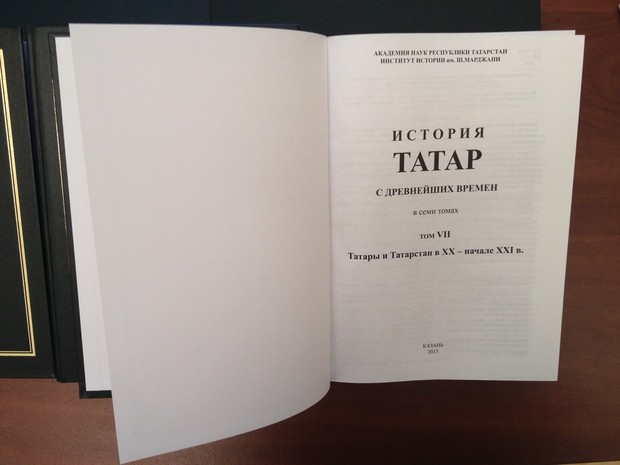
Here they wrote the fundamental 7-volume work 'The history of the Tatars'. Basically, I have confidence in my fellow scientists in this field. The version, which in the last couple of decades finally established, has always been – the priority of the Golden Horde heritage from the point of view of history
An archaeologist will never discuss what people an archaeological complex belongs to today. Because there have been so much evolutions, contacts, interactions, influences, migrations of human populations, say nothing of cultural interaction. I already do not tell that in this tomb there were ancient Alans or ancient Ossetians; or the Altaians have their ancestor — the ancient Princess Ukoka, who was buried — it is also a strained interpretation. The same situation with the Tatars. Not to mention the fact that the category of 'Tatars' have a complex dynamics. So, I adhere to more complex cultural versions from the point of view of origin and I am against a rigid connection of modern identities of self-consciousness with everything that was in the past.
There's the generally accepted point of view about the Migration Period in the early middle ages. The recent studies have shown that more likely it is the names that migrated, and, perhaps, there was no mass migration of peoples at all. We should be very careful about what we are studying in the distant past and not try to explain everything. There should be some unknown things, and we should say: 'Yes, we don't know this.' After us there will be many generations of researchers, for whom we should leave place for explanations. So, today's version of the origin of the Tatars will be corrected or reviewed after two or three generations of scientists. Because the version that existed three generations before us is different from today's one. It is wrong to think that today's opinion is the only correct one, I theink, it is not a scientific approach.
'We can write as many ethnic groups as necessary'
In the 2000s, there was a heated debate around the Tatars before the Сensus. What was more important in this Сensus: science or politics?
It had an excessive emotional politicization. Especially the 2002 Census caused sharpness. In 2010, there were no such sharp debates. In 2002, it was the first post-Soviet Census (the previous was in 1989). They needed to make some adjustments in accordance with the new Constitution, new principles, including with the right to self-determination. No one has the right to rewrite it, what was done in the Soviet times. The movement of small groups appeared — of the seeking of the roots, the attempt to assert their independence. If you're an activist from small groups — to become leaders of the Besermyan, the Kryashens or others. This is a general process, in the whole world. This is due to the fact that the country has a law that pays attention and gives preferences to ethnic minorities, this factor has played its role. Therefore, these small-number identities began to actualize, the leaders appeared. Besides, freedom of speech, democratic situation — all this brought to the surface what had been pressed or crushed in the Soviet times, now it has revived. I wouldn't say that everything has been made from scratch. After all, if there had not been the pre-revolutionary Cossacks, probably, there would not be modern Cossacks. The Soviet regime started the repressions from the Cossacks, later there were deported ones, that is how the modern Cossacks appeared. The same situation with the Kryashens: they were in the Census of 1926, they even had some elements of cultural autonomy. They were rewritten during the Soviet period as Tatars during the processing of the census materials before publishing them, but now they appeared. They have their temples, their different traditions, the names — Ivanov, Petrov, Alekseyev. So, to say that it has been done from scratch to split the Tatar nation — there were such accusations against me and my Institute. But before we supported this position, we held a couple of academic boards, where the Kryashens came, the Patriarch Alexy turned to the President asking to take into account the self-determination of the Kryashens.
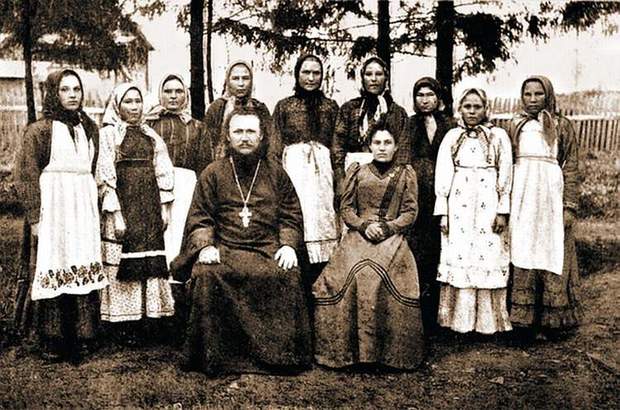
'The Kryashens: they were in the Census of 1926, they even had some elements of cultural autonomy. They were rewritten during the Soviet period as Tatars.' Photo: tatarstan-mitropolia.ru
The same situation is with the Besermyan. But the Udmurts did not actualize it and did not fall into hysterics over the fact that they could become less if the Besermyan would be separated from them, and then they would not be a majority. But it was on the verge — 50-51%. Also, there was a danger that local elites, the local Tatar community so nervously reacted to the attempt to separate the Kryashen into another ethnic category in the census — not to mention the separate people. The Tatars could lose the majority. There was a very strong sentiment that the Tatars should be more than 50%, what was achieved, not only due to the birth rate. There were people of mixed parentage, birth rate, migration of the Tatars to Tatarstan, less emigration — the number of factors affected.
However, the Kryashen factor was not decisive, nobody knew how many people would declare that they were Kryashen. By the way, this was my formula: a group and a subgroup were introduced. That is, the Kryashens were not separated from the Tatars, they were in the census as a subgroup of the Tatars. They saw themselves in the census, they were not altered in the Tatars, but at the same time, the Kryashens were listed among the Tatars, as well as the Siberian Tatars. As well as the Pomors and the Cossacks were among the Russians. However, there were even the Cossacks that demanded for themselves a separate ethnic group. They complained of me to the President, I still receive these complaints.
It is not a question of whether it is a people or not, the question is in the census procedure. Of course, it has a moral and political significance. When people ask me how many peoples live in Russia, I say: we have only one nation — the citizens of Russia. We can write as many ethnic groups as necessary. We consider 700 English people living in Russia to be a separate people. But 200 thousand Russians living in London are not considered a people of Britain. So, it depends. We consider even 300 of Japanese as a people of Russia, and Swedes, Cubans, happened to be in Russia. Look at the list of peoples and you will see. They say that we have 193 peoples, there is no such any other country in the world. It will turn out that 500 peoples live in London, if to count as we do.
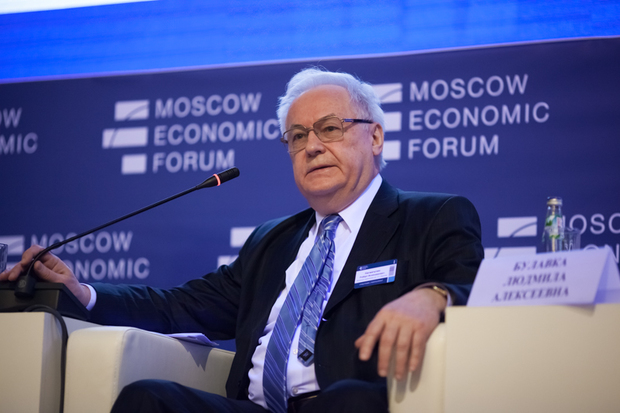
'Once an academician Robert Nigmatullin (on the photo above), the director of the Institute of Oceanology, said, 'I am a Tatar-Bashkir'. Many natives from this region would prefer this identification.' Photo: kgau-econom.ru
'The Tatar-Bashkirs'
In Bashkiria, they also had problems around the census. Especially regarding people living on the north and western borders of the Republic. There are different versions of who they are — the Tatars written as Bashkirs or the Bashkirs undergone tatarisation. After all, who are they?
There is a kind of Tatar-Bashkir symbiosis — a bilingual, bicultural zone. By the way, in the ethnology there is the Russian-Ukrainian borderland: there is the population, for whom it is difficult to define who they are — Russians or Ukrainians. They say: 'In one place we are Ukrainians, in other — Muscovites.' They speak Surzhyk, a mixture of Russian and Ukrainian languages. Here they have a symbiosis. That is why, in Bashkiria near one secretary or president due to some effects or their own calculations, what is more advantageous, they call themselves Bashkirs, in another situation they say that they are Tatars. I am advocating to give people of mixed origin, who equally share the cultures and know the languages of father and mother, to give the opportunity for people to indicate a dual ethnicity. By the way, the United Nations also recommends to do that. Many countries where the census asks for ethnic identity, such opportunity is given to people — to specify not one but several or at least two ethnicities in the column 'nationality'.
As for the Tatars and Bashkirs, here it is not a matter of the descendants of mixed marriages. Here a part of the population formed about whom we can say Tatar-Bashkir. But we have such category neither in science nor in practice. You must be either a Tatar or Bashkir. Once an academician Robert Nigmatullin, the director of the Institute of Oceanology, said, 'I am a Tatar-Bashkir'. Many natives from this region would prefer this identification. But the Tatars want to be Tatars, the Bashkirs — Bashkirs. I would not dwell on this special attention. As well as I would not allow some violence, especially a rewriting or a hard campaign: 'Tell that you are a Tartar' or 'You are a Bashkir'.
As a result, under Rakhimov in the 2002 Census probably no less than 100 thousand Tatars were written as Bashkirs. They, in a more relaxed situation, without pressing, without propaganda: 'If you live in Bashkortostan, so you must be a Bashkir', would have behaved differently. Besides, there is the situation that the Bashkirs are a minority, they are less than the Russians and the Tatars, they would like to take at least the second place. After all, the majority of the seats in their government, in the Legislative Assembly belongs to the Bashkirs, and this is obviously not very democratic from the point of view of civil rights. But already in the 2010 Census under the new President (Rustem Khamitov, the head of Bashkortostan — editor's note) they did not have such obsession, Bashkir nationalism started to decline, there is no so strict setup to learn Bashkir language anymore. And Bashkir nationalism has weakened and does not occur. It benefits the Republic because they have three-community state: there is Bashkir identity or Bashkortostan (as you have in Tatarstan). It is wrong to divide, to give preference to only one group: since it is Bashkortostan then they must ahead.
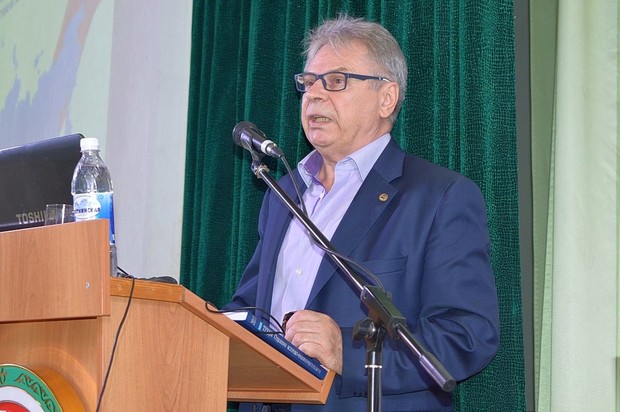
If you're a Chuvash and you write a work of literature in the Chuvash language, only the Chuvashs will read you. But if you, like Chingiz Aitmatov, write your brilliant work not in Kyrgyz but in Russian, you will be read in the whole world
'There is no rigid connection: dead language — dead people'
In the 1990s, in Tatarstan they tried to introduce bilingualism. However, the project failed. Why? Are there any example of successful introduction of bilingualism in the world?
It is a difficult problem. Canada has spent billions of dollars for that. But Canada as a country has not become bilingual. However, the public services have become bilingual: the publication of all documents, texts of laws are done in two languages. If you call an information service and ask in French, they have to answer in French. But if it is not a private sector, business is not allowed to impose any rigid requirements. But the state and bureaucracy must speak in a language of taxpayers.
As for Tatarstan, perhaps, the government officials, in the court, the police must speak two languages, as it is. At the same time, it is a difficult task to demand from Russians, including in the public service, especially at the municipal level, where Russian population prevails, to speak the Tatar language. Because there is a majority language, the state language and related to the world languages top, how much of the world heritage has been created in Russian. Its knowledge and the use as other world language, is very helpful in life, prosperity, career, relationships, the affirmation of him/herself, science. If you're a Chuvash and you write a work of literature in the Chuvash language, only the Chuvashs will read you. But if you, like Chingiz Aitmatov, write your brilliant work not in Kyrgyz but in Russian, you will be read in the whole world: everyone who reads in Russian, and also they will translate it. Therefore, he claims himself, his Kyrgyz culture and identity through the Russian language.
Speaking a more powerful language does not mean that you gave up, betrayed your people, the language. Many peoples have switched to a more powerful language but retained their identity. The Irish, for example, and dozens of people. They retained their identity but they speak the language of wider distribution and more beneficial one.
Why have the Irish almost lost their Celtic language?
Assimilation. Besides, it is reviving a little. Why do a people switch from a minority language to a majority language? Because it is a language of the majority. And assimilation is happening all over the world. Why our citizens, a citizen of Russia, no matter who he is — a Tatar, a Russian or a Chuvash — when gone to America, his children will definitely speak English at 100%? Nobody says that he betrayed his people, forgot his Tatar language. It is considered to be normal <…> Yes, a language plays an important role in preserving the identity. But there is no rigid connection: dead language — dead people. Language is important but is not a unique and absolutely exceptional condition for the existence of a people. The switching in the framework of a state to a language of the majority — it is a norm of the world, linguistic assimilation, if it is voluntary. If it is forced, when a person has no other way to speak their language, it is bad.
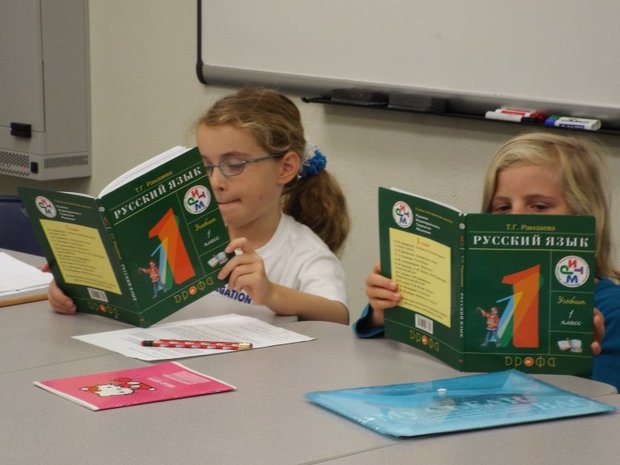
'We should also ask whether parents would send their children in an Udmurt school. They'll say: 'No, we want him enrolled in the MEPhI or the MSU, so he'll go to a Russian school'. We can spend huge efforts.' Photo: scientificrussia.ru
In our country, some efforts have been made. We have legal norms and in court you may speak not Russian but Tatar or Chuvash. But to say that everything is done to ensure that people with non-Russian language realized themselves, especially in the school system, it is very expensive, we are unable to implement this. That is why we do not ratify the European Charter for Regional or Minority Languages. It's one thing to realize it in Hungary or Finland and Germany, where there are two or three minorities, but we have 70 languages, then how many books, how much ambitious effort we must do.
We should also ask whether parents would send their children in an Udmurt school. They'll say: 'No, we want him enrolled in the MEPhI or the MSU, so he'll go to a Russian school'. We can spend huge efforts. There cannot be symmetry when Ukraine says: 'We have Russian schools. Do you have Ukrainian schools for more than two million Ukrainians?'. And Russia says: 'Yes, we will open, build'. There can be no parity, the Russian language has more advantages, people choose it more often than Ukrainian, because it is the world language.
See also:
Valery Tishkov: 'The research showing that the Tatars are at 90% Finno-Ugric are incorrect'